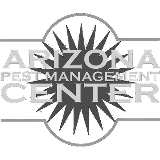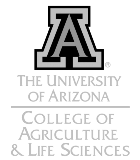-
Mar 4, 2015Thrips in Spring Produce Crops 2015Western flower thrips are now beginning to increase on produce crops throughout the area. This is evident from sample collected here at the Yuma Ag Center and by the increase in areawide trap catches (see Areawide Trap Insect Network). They have slowly been increasing in the Yuma Valley, and should likely continue to increase as the days grow longer. The recent rainfall we had last weekend may temporarily reduce numbers, but don’t expect that to last very long. Based on historical data, if temperatures remain moderate and rainfall is light we can expect thrips numbers to reach high levels by the mid-March and into April (see graph below). Another factor PCAs should be concerned with this time of the year is thrips "bioconcentration" which occurs each year in March as lettuce acreage declines. This could be especially important this season since the abnormally warm temperatures appear to be pushing lettuce harvests ahead of schedule relative to years past. Each time a lettuce field is harvested and disked, adult thrips populations disperse from these areas into the next available lettuce field. This is generally coincident with our seasonally warm temperatures that are suitable for thrips development. As the number of lettuce acres becomes reduced near the end of the season, this creates a bottleneck effect that concentrates high numbers of thrips adults on the remaining fields under production. This can often make chemical control very difficult, particularly in March, as thrips adults may continually re-infest fields following spray applications. Furthermore, by mid-March when most of the lettuce production is finished, these populations can pose a threat to seedling cotton. Note: the key to preventing thrips from significantly scarring leafy vegetable plants is to prevent immature populations from becoming established. For more information on the management of thrips on desert produce please see the Thrips Control Chart 2015.

 To contact John Palumbo go to: jpalumbo@ag.Arizona.edu
To contact John Palumbo go to: jpalumbo@ag.Arizona.edu







